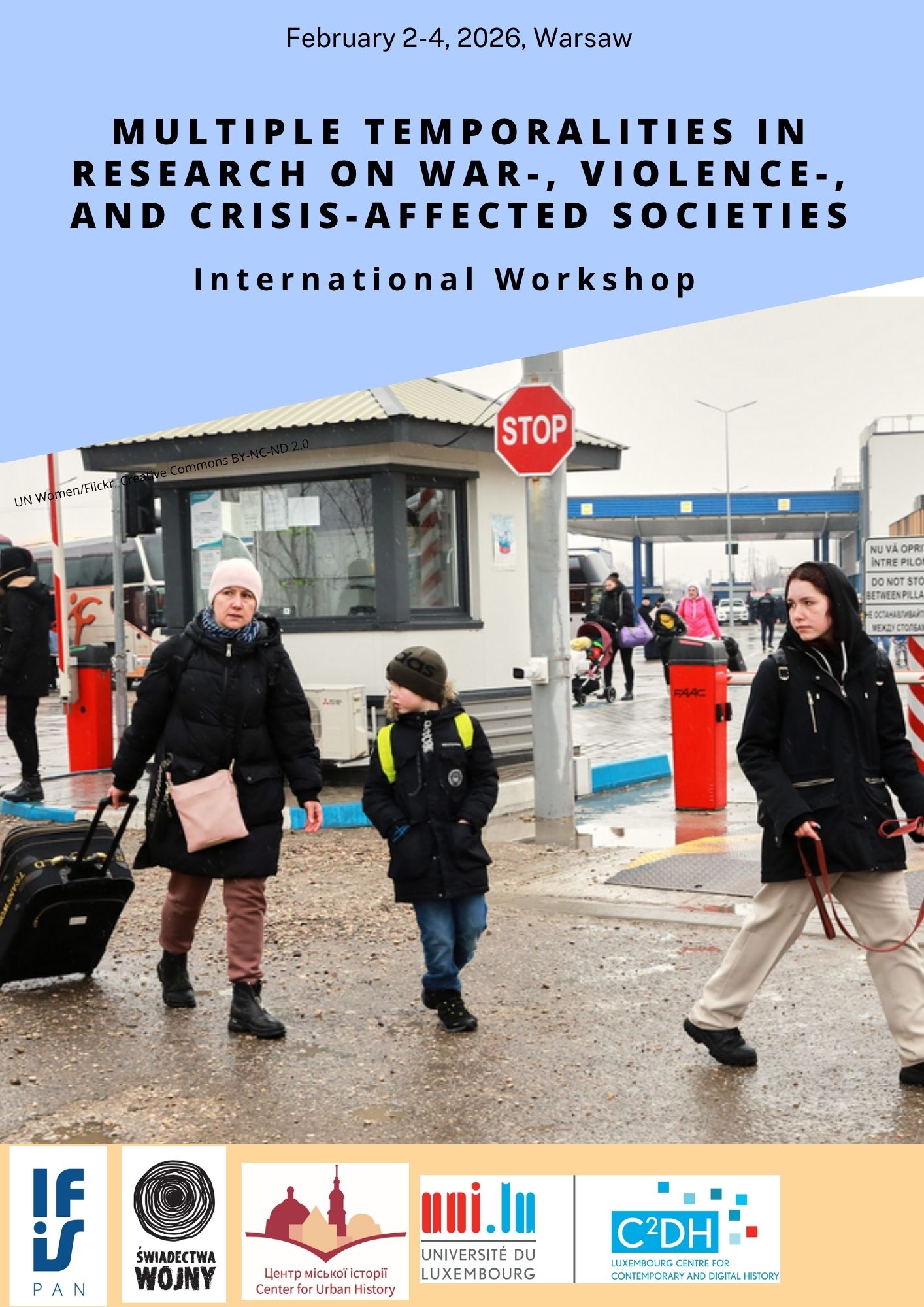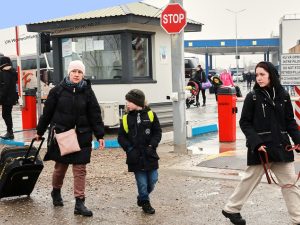Call for Papers for an international workshop to be held from 2 to 4 February 2026 in Warsaw, organised in partnership with the C²DH.
War and conflict disrupt the usual flow of time. The speed at which events unfold rarely matches the pace of their academic comprehension. Scholars often arrive after the event has ended. However, as societies live in a state of crisis — facing pandemics, wars, and natural disasters — researchers must adapt to these conditions and reconsider the temporalities of their work.
Studies of wars and crises are typically conducted in an emergency, rapid-response mode. As conflicts evolve over time, academics must consider their duration. They must also navigate the event’s development, its effects on those at the core of their studies, the speed of knowledge production, and institutional chronologies. We propose joining the discussion on researching war-, violence-, and crisis-affected societies with a focus on temporalities and longitudinal approaches. This approach has traditionally been used to study stable and predictable populations (Henderson, Holland, & Thomson, 2006). Scholars also track small samples of research participants to study the effects of traumatic events on life trajectories and self-perception, conducting interviews at multiple time points, sometimes spanning several decades (Cohen, 2014; Connolly et al., 2023; Jordan et al., 2022). However, such projects inherently assume an unthreatened present when people can reflect on events from a temporal distance. This workshop aims to demonstrate that societies subjected to constant missile threats, warfare, mobilization, occupation, and large-scale displacement driven by fear of aggression cannot be considered stable research samples, but can be effectively examined through a longitudinal approach.
In contexts of ongoing violence and threats to safety, the logistical and ethical dimensions of research become particularly complex and demanding (Boulanger, 2014; Caruth, 2014; Jessee, 2017; Wosińska, 2022). Constant adjustments to changing security conditions, transformations of the psychological state of the participants and the research team, searching for optimal ways of communication, balancing roles and loyalties – these are just some of the conditions in which scholars have to work.
Drawing from the organizers’ expertise in longitudinal qualitative research on the ongoing Russian invasion of Ukraine, this workshop aims to bring together scholars reflecting on various temporalities in the study of other war- and crisis-affected societies. Together, we can discuss how studying a fluid and vulnerable population affected by an ongoing crisis presents new challenges to us as researchers and our research partners.
Topics
While we might consider other related topics, we encourage you to address the following:
- How can we navigate between different speeds — speed at which events unfold and their assessment.
- What methodological and ethical adjustments do we apply in cases of protracted uncertainty?
- What can we learn from conducting multiple rounds of interviews with refugees, veterans, and civilians living in unstable circumstances?
- How does longitudinal research on ongoing violence and crisis differ from standard qualitative longitudinal research?
- What is the role of past experiences and visions of the future in researching war and violence?
- How do we define longitudinality in the case of societies affected by war and crisis — with the same research participants, in the same location, and on the same topic?
- How do we approach the problem of archiving and long-lasting preservation in this kind of research?
- What kind of diachronic analyses of past and present research on war-, violence-, and crisis-affected societies can we pursue?
Practical information
The conference organizers will cover the cost of three nights of accommodation in Warsaw and provide meals during the workshop. Participants from Ukraine can also receive travel grants (but this does not include the cost of overseas flights). Travel grants for other participants may be available, depending on the conference budget.
The workshop will be held in English. If you are interested in joining but feel unsure about your English skills, please let us know. We may be able to provide Ukrainian-English translation, depending on available funding.
To submit your application, please fill in the on-line form by 21 September 2025.
Should you have any inquiries regarding the conference, please send them to multipletemporalities2026@gmail.com.
Organisation
Organizing Committee: Natalia Otrishchenko, Anna Wylegała, and Machteld Venken.
Conference administrator: Róża Kochanowska
Main organizer: Institute of Philosophy and Sociology, Polish Academy of Sciences (IFiS PAN), Warsaw
Partners: Luxembourg Centre for Contemporary and Digital History (C²DH), Center for Urban History (CUH), Lviv

